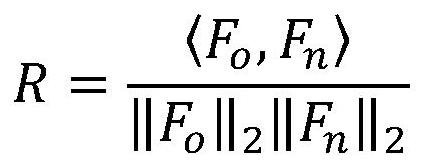A method for person re-identification based on self-motivated discriminative feature learning
A pedestrian re-identification and feature learning technology, applied in the field of pedestrian re-identification based on self-motivated discriminative feature learning, can solve the problem of insufficient optimization of pedestrian feature learning network, and achieve the effect of solving insufficient optimization
- Summary
- Abstract
- Description
- Claims
- Application Information
AI Technical Summary
Problems solved by technology
Method used
Image
Examples
Embodiment Construction
[0053] The present invention will be further described in detail below with reference to the accompanying drawings and embodiments. It should be noted that the following embodiments are intended to facilitate the understanding of the present invention, but do not limit it in any way.
[0054] like figure 1 As shown, a pedestrian re-identification method based on self-excited discriminative feature learning, this embodiment uses the DenseNet161 network as an example to illustrate each module.
[0055] Input: a picture of pedestrians, the input size is 256(height)*128(width).
[0056] Original network: Boost object, here DenseNet161. The DenseNet161 here has been pre-trained on the ImageNet dataset. The original network consists of several convolutional modules. Here DenseNet161 contains 4 convolution modules, each convolution module contains a Dense Block and a Transition Layer. Each Dense Block contains several convolutional units composed of BatchNormalization-ReLU-Conv l...
PUM
 Login to View More
Login to View More Abstract
Description
Claims
Application Information
 Login to View More
Login to View More - R&D
- Intellectual Property
- Life Sciences
- Materials
- Tech Scout
- Unparalleled Data Quality
- Higher Quality Content
- 60% Fewer Hallucinations
Browse by: Latest US Patents, China's latest patents, Technical Efficacy Thesaurus, Application Domain, Technology Topic, Popular Technical Reports.
© 2025 PatSnap. All rights reserved.Legal|Privacy policy|Modern Slavery Act Transparency Statement|Sitemap|About US| Contact US: help@patsnap.com



